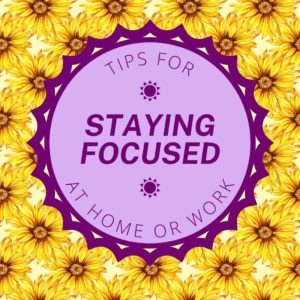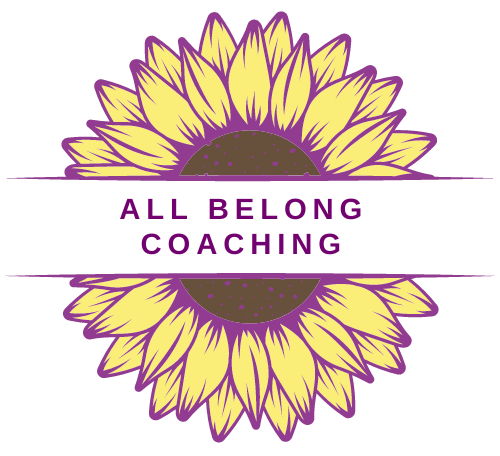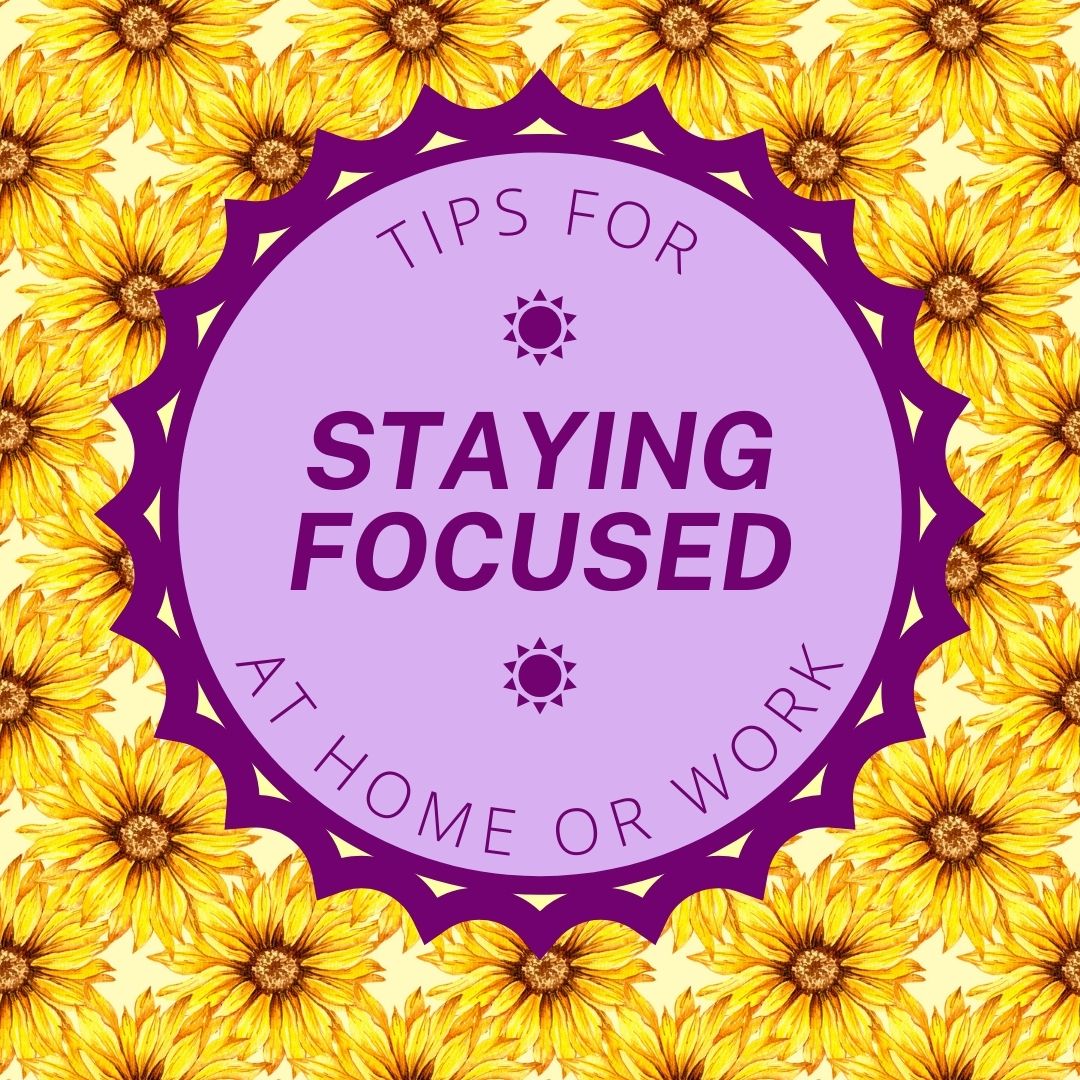Tips For Boosting Focus
One of the things that people ask me the most often is, “What are some tips for maintaining or boosting focus?” This is not surprising because having trouble regulating our focus is a hallmark ADHD symptom that many of us struggle with.
We have lower levels or uneven levels of dopamine and norepinephrine in our brains, which is what we need to maintain focus. Because of that, sometimes we can’t pay attention at all, and other times we can focus so hard and intently that we forget to eat.
No matter how much we want to, or are told to, we cannot just “pay attention” or force ourselves to focus. Our chemistry just doesn’t make that something we can do easily. The good news is, we can do things to boost the likelihood of being able to focus at home, work or school.

Tips For Boosting Your Focus

Create The Best Environment
One of the most important – and most often overlooked – ways to help with focus is to create an environment maximized for you (or your child.) Some suggestions would be – try to have lighting and sound that isn’t distracting to you. If you work at a desk, create a desk environment that is easy for you to focus in. Reduce clutter and distractions. Have necessary supplies within reach. In school, desks nearer the teacher provide slightly less distractions. Keep fidget toys on hand, if movement is needed make sure to have a yoga ball chair or a foot band that you can get movement in and still be getting your job done.

Lists, Lists, Lists
This tip takes some trial and error and willingness to keep trying. Many people have luck by creating a priority list for each day. Some people have luck with stricter todo lists and some need loose goals. You might benefit from a daily list, a weekly list, a monthly list or any combination of the three. One of my favorite tips is to have a “Next Step” list. Instead of having a big to-do list, have a list with your various projects listed – and then just the very next step for each project. For some reason our brains often find it much easier to look at a list and pick one STEP rather than a whole item on a to do list. My current success looks like having a next step list, a today priority list, and a “this week hopefully” list. I keep them all on a white board so I can remove and update easily. This works for me for now, who knows if it will down the line. Be willing to try things out and even if something does not work for you, consider if any piece of it worked and take that with you to the next attempt.

Create a Parking Lot
When you are working on project, listening to a lecture, or doing your homework – create yourself a “parking lot.” This is a separate place to jot down ideas that come to mind while you are working. This way, you can acknowledge to your brain that you had this idea AND that you wrote it down so you won’t forget, and now you can go back to focusing on the project at hand with the knowledge that you can come back to the parking lot any time to pull out one of your great ideas.

Frequent Breaks/Movement
If you are doing work that is repetitive, whether it’s desk work or factory work, take frequent “brain breaks.” Get up and walk around, switch positions, take a thirty second dance break. Break down your work day into bite size chunks and take small breaks between. It doesn’t always feel like what you want to do if you are hyper focused, but taking frequent small breaks allows your brain to not worry about when the next break is, because it already knows. Movement of any type is a great brain booster, which can help with focusing.

Know Your Limits, Learn Your Body
Start to pay attention to your body when you feel your attention drifting or waning. Are you tired? Hungry? Is that person going on and on forever? Do you feel anxious or do you feel depressed? See if you can detect patterns that will help you establish your limits. For example, I have learned that I can’t attend meetings more than 90 minutes in length. It’s just too mentally taxing. So I do my very best to honor that limit for my own mental health.

Buddy Up, Pomodoros, Co-working Groups
There are a lot of ways ADHD folks are finding to improve their focus. Working together with a buddy, or even working while a buddy is just there, is called body doubling and is very effective. Co-working groups are similar – they have them in person and virtual – where people just get together and work on their own projects together. Another tip is to try a pomodoro – this is where you set an alarm and work on a task for 20 minutes (or until the alarm goes off) then take a five minute break, then go back. The brain often finds it easier to “agree” to work on the thing for 15 minutes or 20 minutes than an unknown amount of time.

Accommodations
Asking for accommodations is a way to set yourself up for success, if you are comfortable doing so. You can officially request accommodations in many schools or work places if you are willing to disclose your ADHD. Even unofficially, if there are things you know that help you or your kid, tell your friends and family and support system. Many times they are more than happy to help you out. If you have an official diagnosis and are in the States, you can get accommodations federally protected in most schools and workplaces. You can use them to ask for things that will set you up, like changes to your environment.

The Wrap Up
Those are just some of the tips I know of that may help with maintaining focus. We have ADHD. There’s no tip I can give you that is going to cure your struggles with focus. But you can focus for longer periods of time and you can focus better – if all your other needs are being met and you train your brain to be able to do so. As an aside, I spoke in an earlier blog about the importance of meeting your Core Four needs – check that out HERE.
As an experienced ADHD Coach, I can work with you to figure out which things work for your brain and your family. Book a free, no obligation, 20 minute Discovery Session with me today and we can discuss how partnering together can make a difference in your life.



